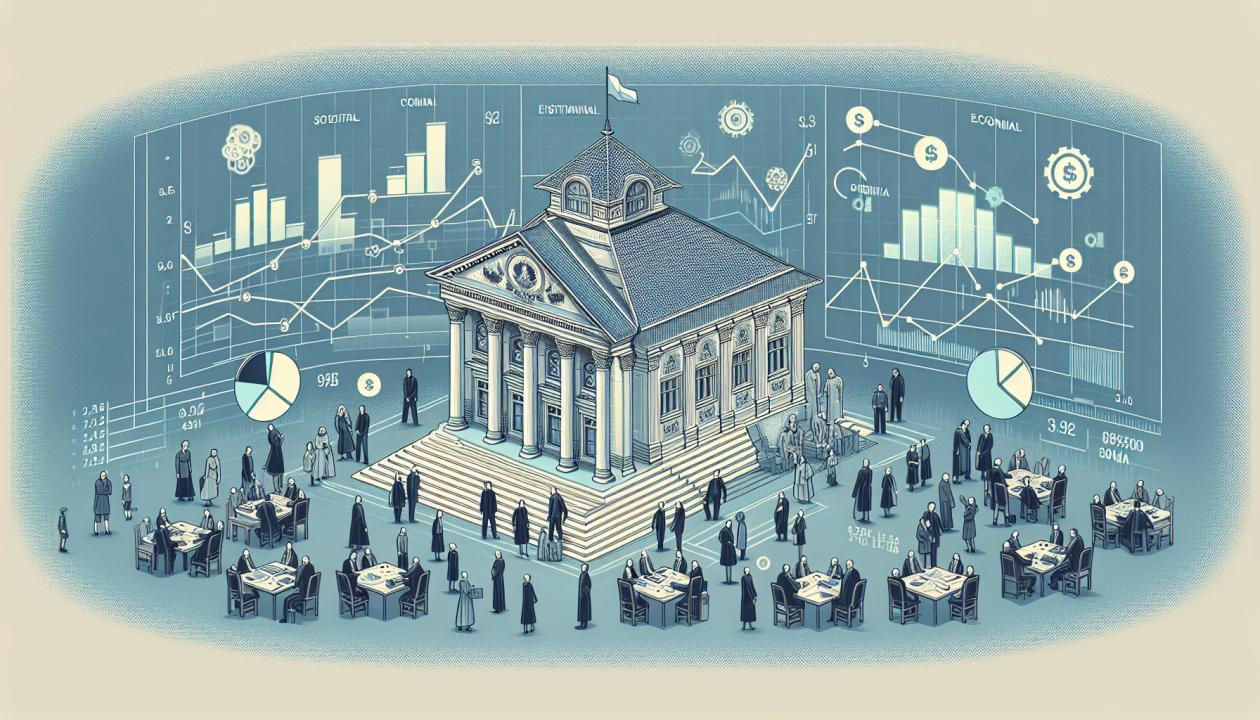What is institutionalism in simple terms.


The economy, both domestically and globally, is quite diverse. It has its own concepts, terms, and even a certain philosophy. For example, what is institutionalism? It's not enough to simply understand what it is; one must also comprehend how it works in simple terms.
In general, institutionalism is a distinct direction in economics and social sciences. It is an intersection of two different spheres. The main point about institutionalism is the study of the influence of institutions on people's behavior and societal development. First, we need to clarify what can be considered an institution in this context. Institutions are not only organizations like schools or hospitals but also rules, norms, and traditions that regulate people's interactions.
Main Ideas of Institutionalism

In general, it's hard to call this concept essential for investors' study. However, it provides an understanding of how everything can work. When delving into the foundations of institutionalism, several important statements must be considered:
- People act not only out of personal interests but also under the influence of social norms.
- The economy and society are closely linked to culture and traditions.
- Changes in institutions lead to changes in people's behavior and, consequently, in society.
This term has its key concepts. First and foremost, it is about institutions. These are norms and certain rules. They help society function and ensure predictability in people's behavior. Examples of such institutions include legislation with its norms, family, or even religion with its moral principles. Of course, not all such institutions are significant from an economic perspective.

There are also formal and informal institutions. Formal institutions are laws, constitutions, rules, while informal institutions are traditions, customs, and behavioral norms. Both types of institutions influence the development of the economy and society. Thus, they can be beneficial.
How Does It Work in Economics?
The more interesting context of institutionalism is in economics. Institutionalism studies how institutions shape economic behavior. For instance, property rights protection laws influence investments and business development. If institutions are ineffective, the economy suffers.
To make it clearer, let's consider a specific example. In countries with a high level of corruption, institutions are weak, which reduces trust in government and slows down development.

This concept of institutionalism emerged quite a while ago and has naturally integrated into the economy, both global and of individual countries. This concept formed the basis of economic theory. The founders of institutionalism claimed that not only logic and profit influence human behavior but also habits, culture, and environment.
Institutionalism also has its foundations. What is being referred to:
- Thorstein Veblen. Investigated how culture and social norms influence the economy.
- John Commons. Focused on legal institutions and their role in the economy.
- Wesley Mitchell. Analyzed economic cycles and the role of institutions in their formation.
However, over Time, institutionalism has modern touches. It can be confidently termed modern and practical. Today, institutionalism is divided into several directions:
- Neo-institutionalism. Focuses on the interaction between institutions and economic agents. For example, how digitalization influences the banking sector.
- Sociological institutionalism. Studies how culture and traditions shape behavior.
- Political institutionalism. Focuses on the role of the state and political institutions.
To clarify, an example can be given. For instance, the influence of educational systems on labor productivity.

In this context, it is essential to understand how institutionalism applies in everyday life. It can even help with certain issues. What is being referred to:
- In some countries, there is a high level of trust in the government, while in others there is not.
- Some economies develop faster due to effective institutions.
- Cultural differences influence international relations.
How institutionalism improves society:
- Creating effective institutions, such as anti-corruption bodies.
- Strengthening legal norms, protecting property rights, and enforcing contracts.
- Supporting social norms, such as promoting inclusivity.
Thus, besides theory, the concept of institutions is quite extensive, popular, and accessible.
Pros and Cons of Institutionalism
For a complete picture of the necessity and viability of institutionalism, its pros and some cons should be examined. Let's start with the pros:
- Considers the role of culture and traditions.
- Helps understand complex processes in society.
- Highlights the importance of changes in institutions for development.
However, this concept has a substantial number of critics. The term may sound good theoretically but is seldom applicable in practice. What is being referred to:
- Sometimes too complicated to implement in practice.
- Does not pay enough attention to individual decisions.
In conclusion, institutionalism is an approach that examines the role of rules, norms, and institutions in shaping human and societal behavior. It helps understand why some countries are more successful than others and what changes are necessary to improve the quality of life. In the context of modern Ukraine, institutionalism could become an essential tool for reforms and development.

However, when it comes to theory, the concepts of institutions and their objectives are very important. They conditionally indicate what and where requires more attention. At the same time, for real investors, all these concepts are not only not particularly significant; they may also distract from the true goal of quickly earning money. Therefore, studying the history and theory of economic functioning, it is not always reasonable to delve into or consider additional social factors. Otherwise, the concept of institutionalism is simultaneously simple, understandable, and quite useful for grasping the overall picture.
Read also
- What is emission in simple terms
- What is an embargo in simple terms
- What is a moratorium in simple words
- What is the Gini coefficient in simple terms
- What is debt consolidation in simple words
- Minimum Living Standard: What It Is and How It Is Calculated









